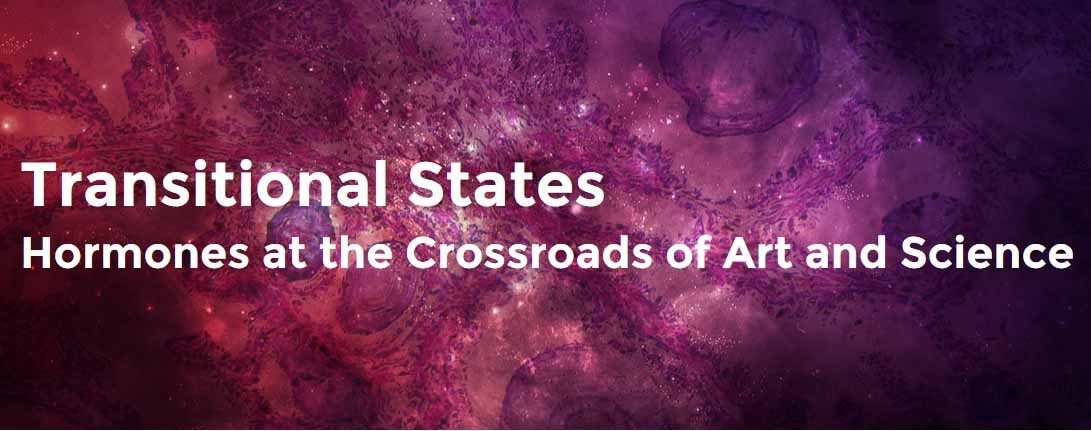
Call to artists : Hormones as a Crossroads
Transitional States: Hormones at the Crossroads of Art and Science
International Video Art Exhibition. Open call for artists. Website
Deadline : March 21, 2017.
The programme will consist of a traveling exhibition of videos and a number of public debates. It will start in February 2018 at Project Space Plus at the University of Lincoln (UK) and travel in May 2018 to the Peltz Gallery at Birkbeck University in London. It will then visit Bologna (venue TBC) in Italy and Barcelona (venue TBC) in Spain at the end of 2018.
"Calling for videos or performances for video that explore hormones, medical technologies, sexuality, gender and body modifications."
Hormones play an immense role in every single human being's life. Even before we are born, hormones are at work; they affect us in our mother's womb and, as we get older, they regulate our moods, sleeping patterns, and growth. Once we hit puberty we are practically at the mercy of our hormones; they dictate our sexual development and impact our emotional and, in many ways, psychological development. As we grow older they affect our fertility, especially for women. Yet for playing such a critical role throughout our lives, few people stop to consider how important hormones are.
With the introduction of artificial hormones in the 1930s, medical scientists sought to identify and employ hormones in new ways. Since then, hormone treatments have affected the lives of millions of people and they are used in a variety of ways throughout contemporary society: contraceptive pills use hormones to prevent pregnancy; transgender people use hormones to express themselves more freely; thyroid disorders are now treatable; and, controversially, athletes are increasingly using hormones to enhance their performance.
Working with a range of stakeholders, we are developing an international public engagement programme entitled ‘Transitional States: Hormones at the Crossroads of Art and Science'. The programme will consist of a traveling exhibition of videos and a number of public debates. It will start in February 2018 at Project Space Plus at the University of Lincoln and travel in May 2018 to the Peltz Gallery at Birkbeck University in London. It will then visit Bologna (venue TBC) in Italy and Barcelona (venue TBC) in Spain at the end of 2018. The exhibition will remain 15-35 days in each city where three public debates that have been created specifically for each location will supplement the exhibition. The public engagement programme aims to raise awareness of the central role hormones play in our lives and how medical research has employed them in contradictory ways.
We are inviting artists to submit existing work or to create new videos or performances for video that explore hormones, medical technologies, sexuality, gender and body modifications. We are particularly interested in the relations and interactions between hormones and transsexuality, non-binary genders, intersexuality, physical alterations, birth control, fertility, menopause, sexology and performance enhancement to boost both athletic and sexual performances.
The Jury members Lois Keidan, Laura Leuzzi, Carlos Motta and Issey Osman will select up to 10 works for the exhibition, which will be curated by the arts organisation, Arts Feminism Queer (www.cuntemporary.org).
Artists will receive a fee of £100 for screening their work and will be invited to take part in the launch of the video installation in London. Where possible, we will contribute to travel costs and cover accommodation expenses for video authors.
We will also publish a full colour catalogue for the public engagement programme, which will feature all the artists' works and topics discussed in the public debates.
For more information, application and guidelines visit http://transitionalstates.com/opencall
For further information about the open call, please contact
infotransitionalstates@gmail.com